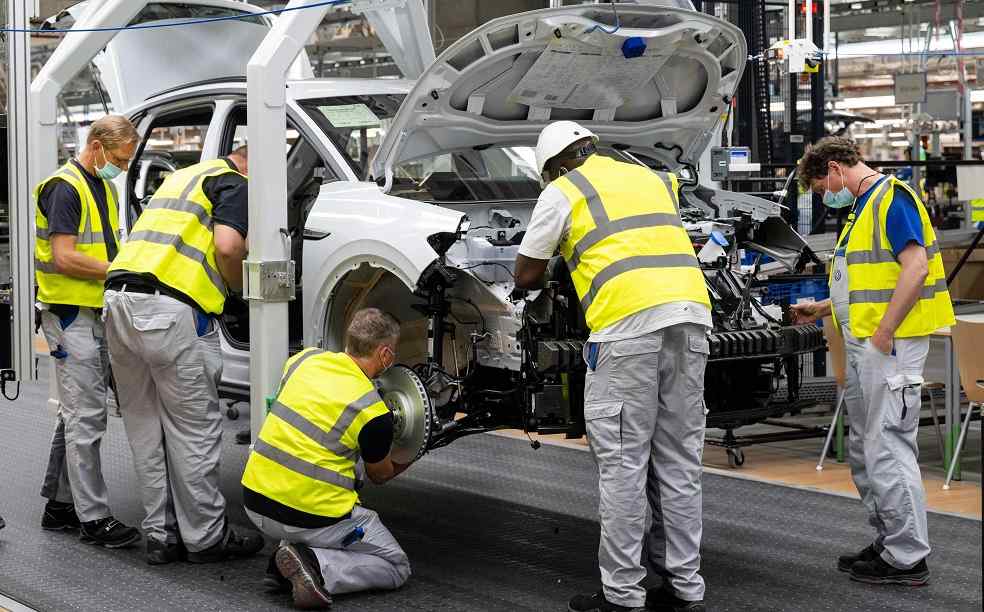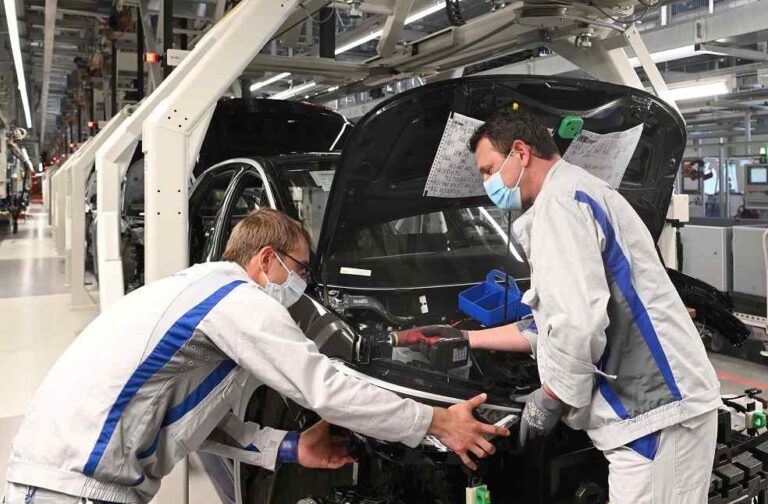German auto sector, long celebrated for its engineering excellence, confronts a transformative era. The swift move toward electric vehicles (EVs) necessitates profound changes, primarily manifesting in extensive job cuts. This development signals a significant shift, stirring both economic concerns and political dialogue.
ZF Friedrichshafen, a pivotal player in Germany’s automotive industry and the nation’s second-largest auto supplier, faces a challenging scenario. The Financial Times reported the company’s potential job reduction plan, which could see as many as 12,000 employees laid off by 2030. Currently employing a global workforce of 165,000, this news has already led to visible unrest, with about 3,000 workers demonstrating in Friedrichshafen.
Similarly, Bosch, a global leader in automotive supply with clients like Ford, GM, Toyota, VW, and BMW, already anticipates significant workforce reductions. The company foresees the termination of roughly 1,200 roles in its software and electronics division by the end of 2026, primarily affecting its Stuttgart base.

Continental, another key German auto parts manufacturer, last November announced its intention to cut jobs globally. This strategy aims to achieve annual savings of €400 million from 2025. These decisions reflect the industry-wide challenges of rampant inflation, escalating costs for raw materials, and rising energy expenditures.
The industry’s transition to EVs marks a critical juncture. It signifies a leap towards modernization and environmental responsibility but also imposes hefty financial strains. For instance, ZF’s reported net debt of €11.5 billion has led to significant job cuts. Additionally, the labor demands for EV component production are markedly lower than those for traditional internal combustion engines, further driving workforce reductions.
Volkswagen, another giant in the German automotive landscape, faces similar challenges. The company plans to reduce its workforce in Germany as part of a broader strategy to cut costs by $11 billion. The Zwickau facility, a pioneer in exclusively manufacturing electric cars, is also experiencing job cuts due to declining production needs.

These industry-wide changes have broader implications beyond the economic sphere. The potential for extensive job losses suggests possible political instability, especially in a country where unions are deeply embedded in the political structure. However, there are indications of proactive adaptation. BMW, for instance, is investing heavily in converting its Munich factory to solely produce electric vehicles by 2027, a move that signals a commitment to the evolving EV market.
As these industry leaders adjust to the electric vehicle revolution, they must tackle not only technical and financial obstacles but also engage in intricate negotiations with unions, as required by German law. These negotiations are critical in determining the future of the workforce and the companies’ restructuring plans.
Ultimately, the German auto industry is at a decisive point. While the transition to electric vehicles is essential for future-proofing the industry and embracing environmental commitments, it presents substantial challenges, particularly in terms of workforce impact. The upcoming years will be decisive in seeing how these established companies navigate the new landscape and mitigate the socio-economic effects of this transition.
LATEST | Canada to host Summit to Tackle Auto Theft: Uniting Leaders for Action





